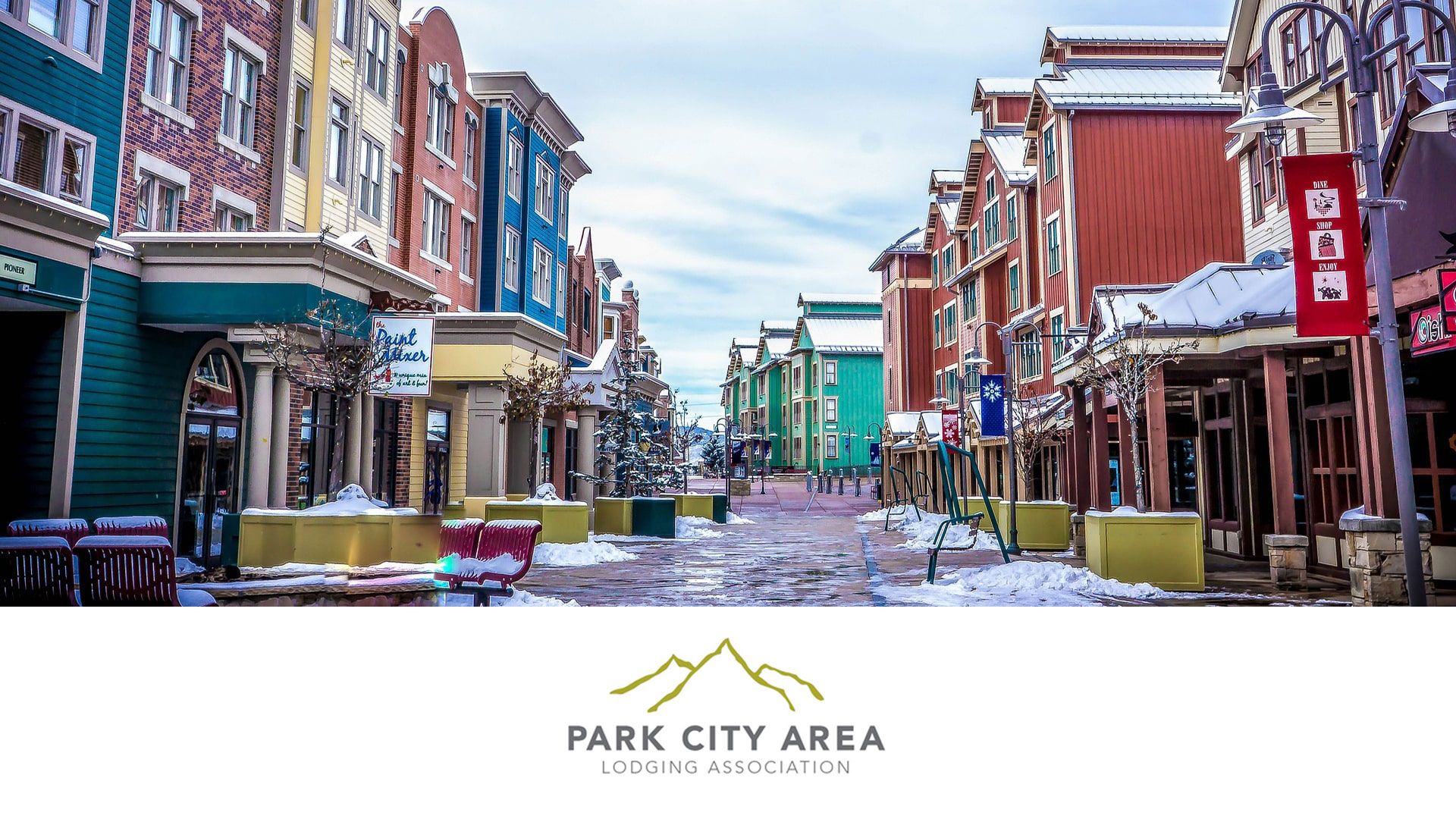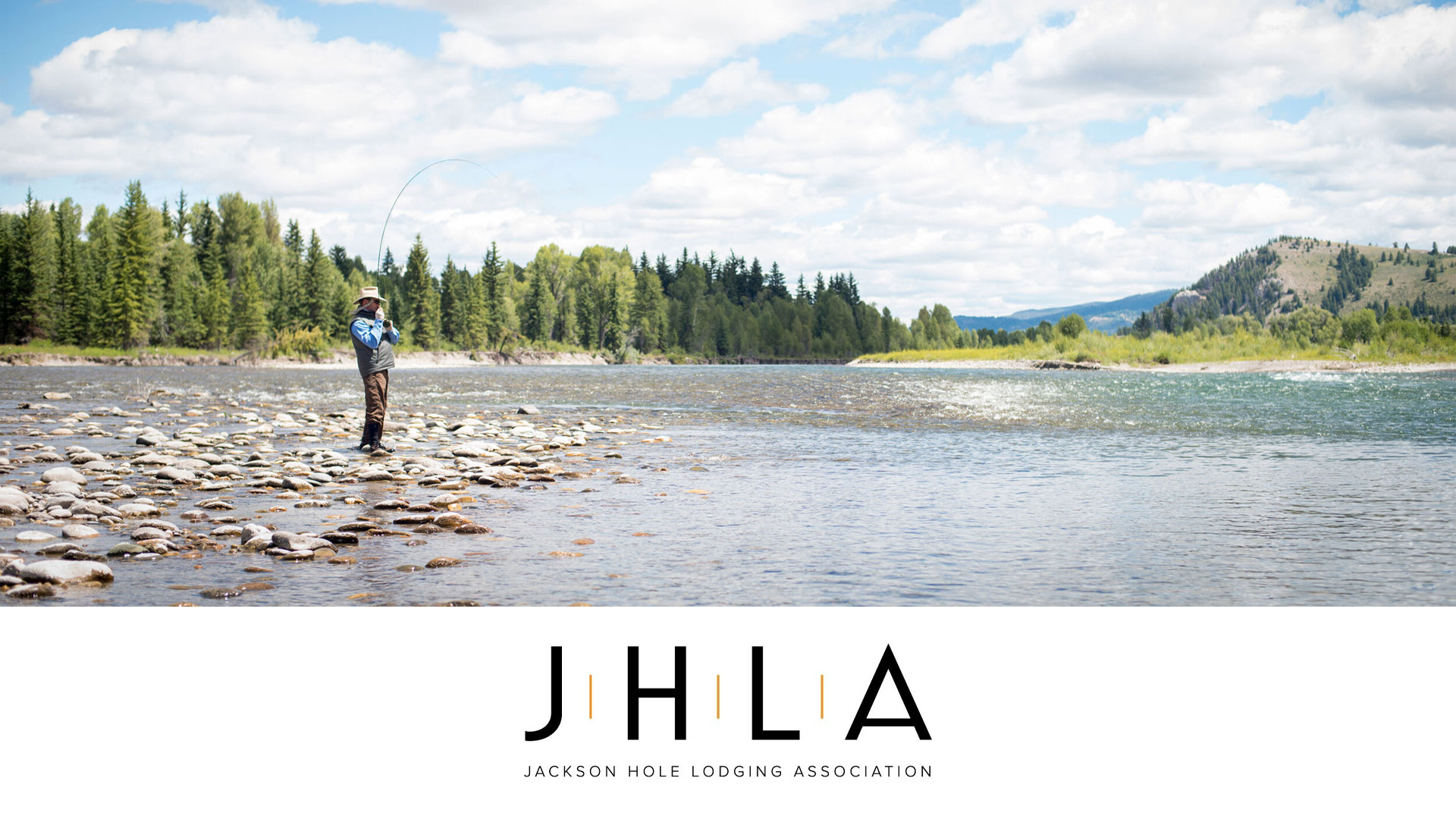Empowering Local Businesses: Rachel Alday on the Rise of Lodging Associations
8th Aug 2024
Meaningful standards by which hosts and guests can reasonably and safely engage in the experience economy are important. The short-term vacation rental industry is unique and deserves the clarity that only industry-wide standardization and professionalization can impart. The short-term vacation rental community can only make headway in this great endeavor if it sees the value in proactively creating regulations to govern itself before ill-informed outsiders to our community who are not interested in the nuances of the industry do. Only an organized effort can successfully set a regulatory agenda in the many communities in which this industry conducts its business.
It’s essential that industry stakeholders re-contextualize the role that short-term vacation rentals play in the communities in which they exist, not as nuisances or threats to the integrity of their communities, but rather as what they are–community members, small business owners, and local professionals engaged in the vital work of adding value to the communities in which they operate.
Many industry experts, like Rachel Alday, derive value from working towards this goal by forming local lodging associations or joining those existing in their community. In addition to being the Co-Founder and Co-Owner of Abode Luxury Rentals, Alday is an active member of the communities in which she operates. In Park City, Utah, Alday holds a position on the board of directors for the Park City Chamber of Commerce and Park City’s Promontory Foundation. She is also a founding member of the Jackson Hole Lodging Association.
Rachel Alday suggests that lodging associations are valuable tools because they represent and advocate for the interests of local accommodation providers by promoting tourism, improving industry standards, providing networking opportunities, and engaging in community and legislative advocacy to support the local lodging industry.
Importance of Self-Regulation
Many current challenges the vacation rental industry faces underscore the importance of proactive industry self-regulation. Local lodging associations are an essential place to start because they unite industry stakeholders with a common goal to meet safety standards, implement initiatives that improve the communities they serve, and prevent external, reactionary regulations. Alday’s approach demonstrates that active participation in lodging associations benefits local businesses and strengthens the community's shared commitment to safety, sustainability, and quality.
Short-Term Vacation Rentals and Safety Regulations
The impact of safety regulations on the vacation rental industry is a salient concern for guests and hosts alike. On May 19th, 2024, Hallie Jackson interviewed Airbnb CEO Brian Chesky in an exclusive segment on NBC Nightly News. While this interview was wide-ranging in scope, an underlying current of damage control was hard to miss. The bold headline of NBC’s coverage of this interview centered on the inherent difficulties of enforcing site-wide regulations requiring each listing to be equipped with a carbon monoxide detector, leaving readers with the impression that though safety is a concern for Airbnb, it may not be a priority. This perspective damages the integrity of the entire short-term rental industry and its ability to work cooperatively with their communities.
Airbnb recorded one of its first carbon monoxide poisoning deaths on December 30th, 2013. The victim was Elizabeth Eun-Chung Yuh, a 35-year-old Canadian citizen, who succumbed to carbon monoxide poisoning while vacationing with four of her friends at an Airbnb listing in Taipei, Taiwan. Authorities pronounced Yuh dead at the scene, while emergency responders took her friends to a local hospital to treat them for acute carbon monoxide poisoning.
Airbnb’s response to Yuh’s tragic death is emblematic of the company’s “building an airplane while flying it” approach. The company settled a wrongful death suit filed by the family to the tune of 2 million dollars, denied all liability, and labeled the settlement an offer issued only for “humanitarian reasons” before vowing that all listings would be furnished with CO detectors by the end of 2014. The company has since quietly stepped back from this promise, electing instead to provide qualified hosts with free smoke and CO detectors should they voluntarily decide to take advantage of their offer.
The Yuh tragedy highlighted the dual nature of Airbnb in 2014: it aimed to be an innovative hospitality brand but struggled to ensure host accountability and guest safety. Public perception varied, with critics viewing Airbnb as a rule-breaking entity and supporters seeing it as a beneficial disruptor. The tragedy underscored the inherent risks of unregulated short-term rentals compared to standardized hotel safety. Despite its popularity, Airbnb distanced itself from being labeled as a lodging provider, framing itself as a neutral platform. This ambiguity, however, poses significant consumer risks, as platforms often prioritize profit over safety, which can leave an unfavorable impression on local legislators. In other words, a profit-first mentality does not leave the impression that short-term rental stakeholders are interested in working in good faith with their communities.
Industry Experts’ Concerns and Historical Parallels
On June 19, 2024, Eric Thibodeaux joined the hosts of The Art Of Hospitality podcast. In an episode titled, Building Our Vacation Rental Businesses The Safe Way, the panel suggested that the recent comments from Airbnb CEO Brian Chesky about the perceived difficulty of coming through in a meaningful way on the decade-old promise to verify that all listed properties have smoke and CO detectors are an example of Airbnb’s profits-first mentality and demonstrate disinterest in prioritizing safety as a company value. This lack of focus on safety as a company value and its high visibility on the recent Hallie Jackson segment puts the entire vacation rental industry in an increasingly untenable position regarding regulations. The argument goes that based on the perceived inability of the vacation rental industry to regulate itself meaningfully, lobbyists for the hotel industry will seize the opportunity to seek the imposition of sundry regulations on the competing vacation rental industry to win back the market share that the short-term vacation rental industry has rested from it. To this point, the commentary of the podcast centered on other sectors, such as the Ford Motor Company, with its issue around the Ford Pinto and the airline industry’s history of regulations as they pertain to 9/11 and safety regulations. These references serve as examples that illustrate the tendency for the reactive advent of rules in the absence of endogenously generated regulations.
Conrad O’Connell cited Grimshaw v. Ford as an example of the judicial system financially punishing a company for prioritizing cost over consumer safety. The punitive damages awarded in the 1972 case, amounting to $127.8 million, were the largest of their kind until 1996, when a court ordered General Motors to pay $150 million in a similar case.
Scott Fasano characterized the airline industry’s regulatory history a cautionary tale. He explained that the precipitating incident of the 9/11 World Trade Center attack led to the gradual expansion of existing regulations and the promulgation of new regulations throughout every aspect of the airline industry.
The subtext of the parallels offered by O’Connell and Fasano is a growing concern about Airbnb’s current position on safety regulations, specifically carbon monoxide safety in its listings. The worry is that at some point, there may be an incident that Airbnb might not be able to remediate through a system of non-disclosure agreements and settlements for “humanitarian reasons," resulting in a cascade of over-regulations from outside agencies for the entire industry. As carbon monoxide safety concerns are a well-documented issue, an additional concern is that at some point, Airbnb will not be able to perpetuate the narrative that it is simply a neutral platform but rather a responsible party at the receiving end of severe punitive damages levied at a company that prioritized profits over safety, thusly further darkening the prospects of the short-term vacation rental industry to establish itself as a dependable partner in the process of establishing regulations that duly support both the industry and the communities it serves. Rachel Alday offers some insight into how vacation rental industry stakeholders might create common-sense regulations before an outside regulatory body does it for them.
Rachel Alday's Insights on Regulation and Company Culture
Rachel Alday is an impressive leader in the luxury vacation rental space. She has over a decade of experience informing her views regarding the importance of local lodging associations. Many popular vacation rental podcasts have recently featured Alday. She appeared in an episode of Heather Bayer’s Vacation Rental Success Podcast to give her insights into company culture. Sebastian Munoz’s podcast Hospitality Edge also featured her in an episode entitled “How To Develop Leadership Within Your Team: Insights from Rachel Alday.” In each appearance, Alday emphasizes the importance of choosing the right members for one’s team and how developing a practicable system of mutual respect between team members is critical to creating a winning company culture. Rachel Alday asserts that constant reflection about business management is vital. To that end, Alday is an avid reader. Books like William Guidara’s “Unreasonable Hospitality: The Remarkable Power of Giving People More Than They Expect” and “Tribal Leadership: Leveraging Natural Groups to Build a Thriving Organization” by Dave Logan, John King, and Halee Fischer-Wright are at the heart of Alday’s philosophy as it pertains to maintaining a healthy business. She and her husband, Rob Alday, are extremely active in the lodging associations in Wyoming and Utah.
The Strategic Advantage of Local Lodging Associations

Rachel Alday points to the Park City Area Lodging Association (PCALA) as an example of a lodging association that has successfully brokered professional relationships between local businesses and community stakeholders. The PCALA was founded 38 years ago in 1986, and it counts Rhonda Sideris, the owner of Park City Lodging, among its founding members. Rob Alday, Rachel's husband, is the current president of the PCALA, while she served on the association's board for six years.
The Park City Area Lodging Association brings community leaders together to support the community’s shared interests. They also promote their association's successes, which helps legitimize their legislative agenda. Their legislative agenda for 2024 is compelling and timely because it aims to support economic growth, address workforce and housing challenges, and ensure a fair and competitive tax system. The PCALA has garnered member support from a lengthy list of local business owners by adhering to these core principles. These principles are the reason for the PCALA’s success in providing “an organized voice to city, county, and state governments.” Alday explains that so much of what the PCALA does right is tied to these principles and is worthy of closer study. Alday suggests that PCALA’s success is at least partly contingent upon the scope of its charter. She indicates that regulatory exigency is found more readily locally because of the diversity of political and economic realities within a state. In other words, Alday believes that a lodging association is more agile and agentic at a local rather than a state or national level.
Operational Steps for Lodging Associations
To replicate the success of PCALA, other lodging associations can consider adopting the following operational steps:
- Establishing and Maintaining Communication
- Organize frequent gatherings with members to discuss current issues, provide updates, and plan collective actions.
- Distribute information and update members on industry news and regulatory changes through newsletters, emails, and an online portal.
- Advocacy and Representation
- Create position statements and policy recommendations to present to city, county, and state governments, ensuring they reflect the lodging community's interests.
- Lobby for legislative influence regarding policies that impact the hospitality industry.
- Educational Opportunities
- Offer scholarships to local students interested in hospitality and Tourism-focused curricula.
- Community and Economic Development
- Work with local businesses, suppliers, and other associations to create initiatives that benefit the community and drive economic growth.
- Initiate marketing campaigns to highlight their community as a top lodging destination, increasing tourism and supporting local businesses.
- Encourage members to contribute a percentage of their revenue to the local housing fund for employee housing.
- Enhancing Member Services
- Organize networking events where members can form relationships, exchange best practices, and collaborate on shared goals.
- Maintaining Standards and Reputation
- Participate in discussions about developing service and operations standards to maintain the reputation of the area’s lodging community.
- Set up systems to gather and address feedback from guests and members, ensuring continuous improvement in the hospitality environment.
- Sustainable Tourism Practices
- Take steps to preserve the community's natural beauty and cultural heritage.
- Inform visitors and the local community about sustainability efforts and ways they can contribute.
Addressing Employee Housing: The Role of Housing Trusts and Lodging Associations in Jackson Hole

Rachel Alday is also the founding member of the Jackson Hole Lodging Association (JHLA). Seeing a need in Jackson Hole for a lodging association, Alday filed articles of incorporation for the JHLA in 2019. Initially, local businesses did not readily seek membership in the JHLA. However, interest picked up as local elected officials began to draft legislation that directly impacted the local hospitality industry without these local businesses’ involvement. Jackson Hole became a microcosm of the anxieties outlined by many vacation rental industry experts; if the vacation rental industry didn’t have a seat at the regulatory table, unfriendly actors or disinterested officials would be making the regulations that impacted the hospitality industry–without its influence. Ideally, a lodging association comprised of local business owners and industry stakeholders would work from the outset with the local regulatory officials of the community to develop regulations that drive toward a common goal and shared interests. Unfortunately, Jackson Hole struggles to come to terms with its vacation rental community.
The City and County Councils blame short-term rentals for their community's changing character but cannot meaningfully address large hotels' role in encouraging tourism. So, short-term rentals have become the target of these governing bodies. They’ve painted the short-term vacation rental industry as anathema to employee housing, suggesting that utilizing properties as short-term rentals rather than long-term rentals has exacerbated the impact of the current housing crisis. This logic suggests a cascade effect where the short-term vacation rental industry negatively impacts local businesses, leading to their struggle to maintain hours of operation due to a lack of available employees. However, Alday argues this might not be the most accurate characterization of this issue. Alday suggests that the properties that might be tagged as employee housing are out of the price range of employees when considering the fair market rate as a monthly rental. She further asserts that this misunderstanding about the viability of converting short-term rental properties into long-term rentals for employees could have been avoided if a lodging association had been present at the regulatory discussions to explain these factors to the zoning board. Alday explains that while these concerns are unjustified, without a lodging association to make this point, local regulatory bodies will continue to make inefficient use of their public office by recommending unenforceable and ineffective regulations. Alday points out that a solution remains elusive, even as community members have donated land for employee housing, and the local housing trust is well-funded for projects including employee housing. However, Alday advocates for Jackson Hole Lodging Association members to pledge a percentage of their revenue to the local housing trust to demonstrate the industry’s willingness to take meaningful steps toward solving one of the community’s more pressing issues.
The short-term vacation rental industry exists in a unique moment, and it matters how industry professionals meet that moment. Industry experts like Rachel Alday feel that the sector's future is best negotiated by the careful stewardship of local lodging associations. These associations are comprised of community stakeholders and local business owners, often in competition with one another but invested in the same future and the same goals. Who better to help navigate regulations pertaining to the hospitality industry than those whose livelihoods depend on expertise in that industry? Regulations, just like industry standardization and professionalization, are all but an inevitability. That’s why expert property managers, local business owners and community stakeholders must begin the vital work through local lodging associations to lobby for legislative influence on matters that impact the short-term vacation rental industry.
For more insightful articles like the one you just read, visit the Inhaven blog, "In The Know." Join us to explore the crucial role of local lodging associations and stay informed about the latest trends and challenges in the short-term vacation rental industry. Additionally, explore the wealth of knowledge and insights shared on Rachel Alday's website, Abode Luxury Rentals, where you can find more blogs and resources to help you navigate and thrive in the hospitality industry. Join us in staying informed and proactive in shaping the future of vacation rentals.
